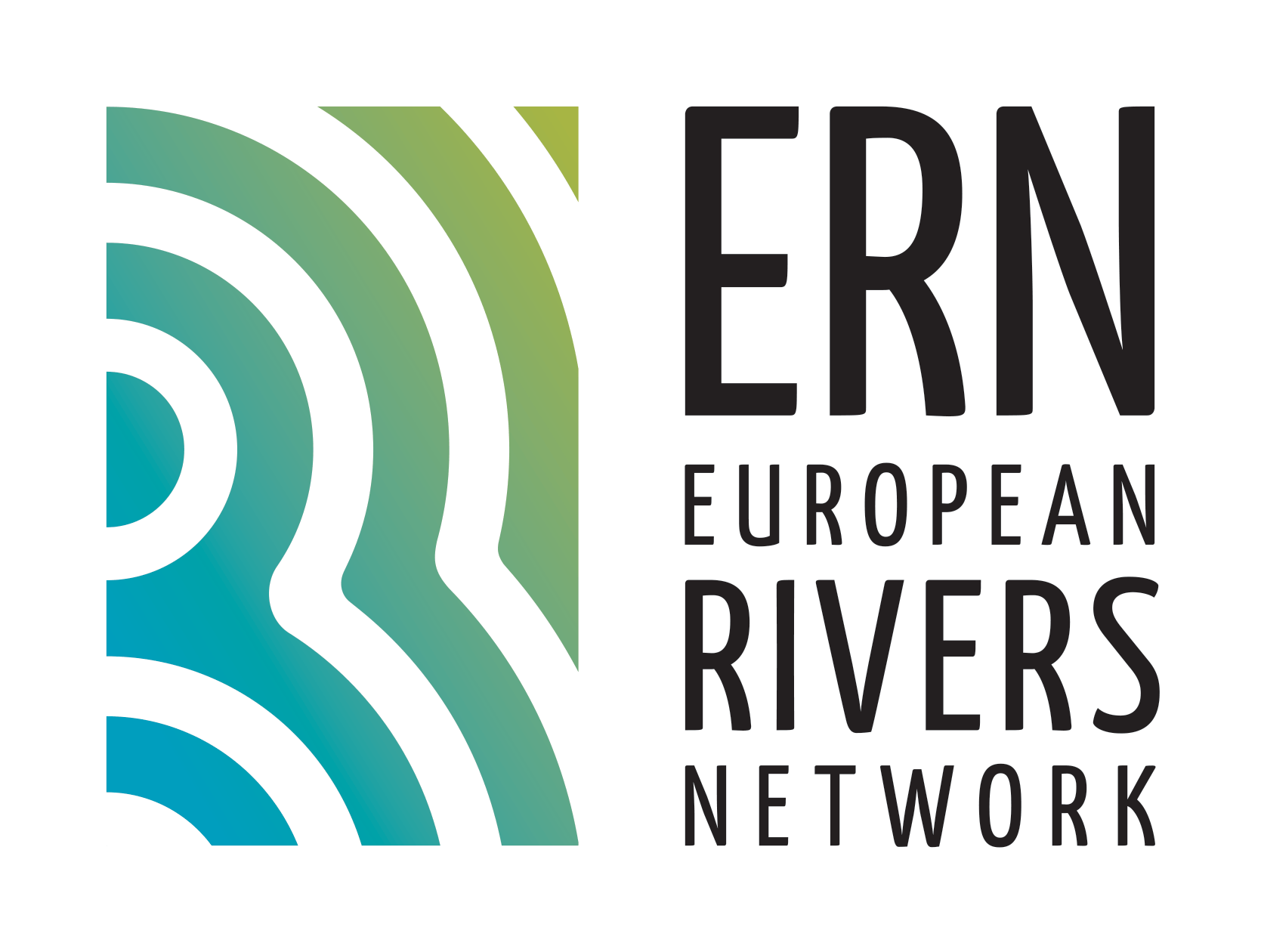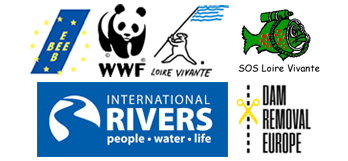Living Rivers Europe – Press Release on Word Water Day : stop damming of the Mura River
77,000+ citizens call on Slovenian government to stop damming of the Mura River
Brussels – 22 March 2018
On World Water Day, Living Rivers Europe – a coalition of five environmental and angling organisations – is calling for Slovenia to abandon plans to erect eight hydropower dams across the Mura River, which would transform this healthy free-flowing river into eight lifeless reservoirs. Living Rivers Europe is the European Anglers Alliance, the European Environmental Bureau, the European Rivers Network, Wetlands International and WWF, who together represent a movement of over 40 million people across Europe.
The planned dams violate both Slovenian and EU water and nature conservation laws and will wreck the Mura River, blocking fish migration routes and the flow of sediment – threatening fish populations as well as wildlife that depend on the river. The river also provides invaluable services to local communities. Not only is it the most important source of drinking water, it also provides natural flood protection and is a valuable recreational area.
“In addition to the environmental and economic consequences, moving forward with these planned dams goes against the Slovenian government’s commitment to ensure international protection of the future Transboundary UNESCO Biosphere Reserve, which will combine the cluster of thirteen protected areas along the Mura-Drava-Danube region”, said Cy Griffin, European Programme Manager at Wetlands International.
In a campaign driven by WWF together with other environmental NGOs, 77,310 people signed a petition calling for the damming of the Mura River to be halted. The signatures will be handed to the Slovenian government today – if these harmful plans are not scrapped, a formal complaint will then be issued to the European Commission outlining how they violate both the Water Framework Directive and Natura 2000.
The case of the Mura River is not an isolated one. All across Europe, rivers and other freshwater ecosystems are being destroyed at an alarming rate. Out of all the ecosystem types, freshwater ecosystems are continuing to experience the most significant deterioration, as both European Environment Agency [1] and WWF’s own research show. Indeed, according to WWF’s Living Planet Report, the abundance of freshwater species worldwide has shrunk by 81% since the 1970s [2]. Agricultural pollution, over-abstraction of water, the construction of hydropower dams, flood defences and navigation all alter the natural state of rivers through physical modification, such as water pumping, channelizing, dredging, and gravel and sand extraction, with disastrous consequences for the environment.
“Our rivers are dying right under our eyes. As Living Rivers Europe, we aim to restore and protect rivers such as Mura for wildlife and for people. Unless we act now, our rivers and the crucial services they provide will continue to deteriorate”, said Andreas Baumüller, Head of Natural Resources at WWF’s European Policy Office, “Back in 2000, EU Member States committed to protect and restore freshwater habitats in Europe through the adoption of the EU Water Framework Directive. Slovenia needs to live up to its legal commitments and scrap these destructive dams. Other countries should also focus on reviving the ambition set out in these visionary laws rather than on trying to side-step them.”
Living Rivers Europe believes that the Water Framework Directive is the only way to turn back the clock on the destruction of Europe’s waters. The Directive has been in effect for 18 years now, and has resulted in some improvements in the status of the EU’s water bodies. However, Member States have been reluctant to make this ambitious legislation work on the ground, bowing instead to economic pressures from industry and farmers. This resulted in the Directive’s goal of achieving good status for the vast majority of Europe’s waters by 2015 being missed by a long shot, with the latest data suggesting that not even half of all rivers, lakes and wetlands in Europe are currently healthy.
“The Water Framework Directive is currently undergoing its scheduled review. Some Member States may see this review period as an opportunity to weaken the Directive’s high standards on freshwater protection, to the detriment of people and nature”, said Mark Owen of the European Anglers Alliance, “The European Anglers Alliance, together with its partners from Living Rivers Europe, will be there every step of the way during this crucial review period to ensure that it is used to strengthen implementation of the Directive, rather than weaken its standards.”
_________________________________________________________________________
Notes to the editors:
[1] The State of Nature in the EU, European Commission, 2015
[2] Living Planet Report, WWF, 2016
> Link to WWF’s campaign to save the Mura River
> Link to Living Rivers Europe’s position paper
> About freshwater ecosystems in Europe and the Water Framework Directive
- Healthy freshwater ecosystems are crucial for people, nature and economies: not only do they supply and purify our water; they also help us adapt to and mitigate the impacts of climate change by storing carbon and ensuring better flood control. The majority of economic sectors and industries, including food production, are also reliant on freshwater ecosystems and many people’s livelihoods depend on freshwater fish populations;
- Living Rivers Europe considers the Water Framework Directive to be one of the EU’s most progressive pieces of environmental legislation. It requires the protection, enhancement and restoration of our rivers, wetlands, lakes and coastal waters, but Member States are currently failing make it work on the ground;
- Under the Water Framework Directive, EU governments have committed to ensure no deterioration and achieve good status for the vast majority of all water bodies by 2015, and at the very latest by 2027;
- Where implemented, the Water Framework Directive has proved to be effective in achieving its goals of good water status and non-deterioration, successfully balancing environmental, social and economic requirements.
- The economic potential of full implementation of the Directive is significant: if Europe had met its 2015 deadline, the expected total yearly benefits could have reached €20 billion per year on average. [1]
> Living Rivers Europe’s key asks:
1. Improved implementation and enforcement of the Water
- Framework Directive, including:More ambitious River Basin Management Plans (RBMPs);
- Ensuring that all exemptions from the Water Framework Directive’s objectives are applied restrictively and in exceptional cases only in order to uphold the purpose and effect of the Directive;
- Increased use of nature-based solutions for tackling the impacts of floods and drought;
- Ensuring that payment for water is based on fair pricing and that those who pollute it also have to pay;
- Ensuring that the remaining free-flowing and unaltered stretches of rivers in Europe are effectively protected and that their biodiversity and ecological values are not compromised by hydropower and inland navigation development.
2. Effective integration of water management aspects into relevant sectoral policies, particularly agriculture, energy and transport.
3. The Water Framework Directive is currently undergoing its scheduled review (in the form of a fitness check): in order to meet the ultimate 2027 deadline, the review should be used to strengthen implementation of the Directive, rather than weaken its standards.
For more information please contact:
Sophie Bauer, Communications Officer (Freshwater), WWF European Policy Office
sbauer@wwf.eu
+32 471 05 25 11
[1] Mattheiß V., De Paoli G. and Strosser P. (ACTeon) (2012) Comparative study of pressures and measures in the major river basin plans in the EU, Task 4 b: Costs & Benefits of WFD implementation (EU project), p. 35, 46.
Download the Press Release in pdf


 ERN France
ERN France ERN is the official WWF Freshwater Partner in France and cooperates with WWF Switzerland, Austria, Netherlands and others
ERN is the official WWF Freshwater Partner in France and cooperates with WWF Switzerland, Austria, Netherlands and others
